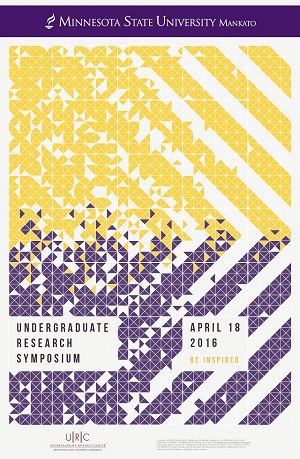Cognitive Abilities & Language Skills in People with Aphasia
Location
CSU Ballroom
Start Date
18-4-2016 2:00 PM
End Date
18-4-2016 3:30 PM
Student's Major
Speech, Hearing, and Rehabilitation Services
Student's College
Allied Health and Nursing
Mentor's Name
H. Sheen Chiou
Mentor's Department
Speech, Hearing, and Rehabilitation Services
Mentor's College
Allied Health and Nursing
Description
This research study is a critical component to understanding the co-dependency and relationship of language and cognition. The purpose of this study was to investigate the relationships between cognitive abilities and language skills in people with aphasia. Data from the assessments of 14 individuals with varying types of aphasia, 10 with anomic, 2 with Broca’s, and 2 with conduction, were used for this research. Results were compared from the overall scores and subtest scores of the language based Western Aphasia Battery, (WAB), Communication Actives of Daily Living- Second Edition (CADL-2), American Speech- Language-Hearing Association Functional Assessment of Communication Skills (ASHA FACS), and cognitive based Cognitive Linguistic Quick Test subtests Design Generation (DG) and Symbol Trails (ST) to find if there were any relationships between language and cognition portions of the tests. The Auditory Verbal Comprehension subtest of the WAB and the overall CADL score showed significant correlation with the DG and ST. The ability to comprehend language and use language in daily activities in people with aphasia is related to their cognitive abilities. On additional research finding was the score of the ASHAFACS has a significant correspondence with the ST score and did not show a meaningful correspondence with the DG score. This helped demonstrate the relationship of the performance of functional communication evaluated in the ASHAFACS with the measure of planning and mental flexibility evaluated in the ST. The DG test measures creative productive thinking that does not relate as well with the functional based aspects of ASHAFACS.
Cognitive Abilities & Language Skills in People with Aphasia
CSU Ballroom
This research study is a critical component to understanding the co-dependency and relationship of language and cognition. The purpose of this study was to investigate the relationships between cognitive abilities and language skills in people with aphasia. Data from the assessments of 14 individuals with varying types of aphasia, 10 with anomic, 2 with Broca’s, and 2 with conduction, were used for this research. Results were compared from the overall scores and subtest scores of the language based Western Aphasia Battery, (WAB), Communication Actives of Daily Living- Second Edition (CADL-2), American Speech- Language-Hearing Association Functional Assessment of Communication Skills (ASHA FACS), and cognitive based Cognitive Linguistic Quick Test subtests Design Generation (DG) and Symbol Trails (ST) to find if there were any relationships between language and cognition portions of the tests. The Auditory Verbal Comprehension subtest of the WAB and the overall CADL score showed significant correlation with the DG and ST. The ability to comprehend language and use language in daily activities in people with aphasia is related to their cognitive abilities. On additional research finding was the score of the ASHAFACS has a significant correspondence with the ST score and did not show a meaningful correspondence with the DG score. This helped demonstrate the relationship of the performance of functional communication evaluated in the ASHAFACS with the measure of planning and mental flexibility evaluated in the ST. The DG test measures creative productive thinking that does not relate as well with the functional based aspects of ASHAFACS.
Recommended Citation
Schwickerath, Laura and Cassie Ross. "Cognitive Abilities & Language Skills in People with Aphasia." Undergraduate Research Symposium, Mankato, MN, April 18, 2016.
https://cornerstone.lib.mnsu.edu/urs/2016/poster-session-B/1




